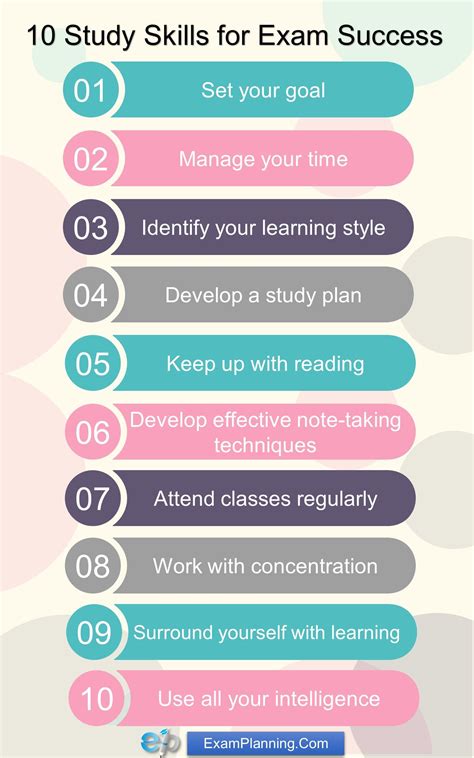10 Proven Strategies for Effective Studying

Studying effectively is not just about the time you spend with your books, but also about how you approach learning. Whether you're preparing for exams, mastering a new skill, or working toward a professional qualification, developing smart study habits can make a world of difference in your retention, understanding, and performance. Here are 10 proven strategies to help you study more effectively.
Set Specific, Achievable Goals
Before you even start studying, it’s important to define clear goals. Instead of saying, "I need to study for my test," set a more specific target: "I will review Chapter 3 and complete 20 practice questions by the end of this study session." Breaking your study material into manageable chunks helps you stay focused and motivated. It also gives you a clear sense of accomplishment as you meet each goal.
Use Active Recall
Active recall is a powerful memory technique where you actively test your knowledge rather than passively reviewing notes. After reading a section of your material, close the book and try to recall the key points without looking. This technique strengthens your memory and reinforces your understanding. You can use flashcards, quiz yourself, or ask someone to test you on what you’ve learned.
Spaced Repetition
Spaced repetition is a method where you review the material at increasing intervals over time. This technique exploits the psychological spacing effect, which helps you retain information longer. For example, review material after one day, then three days, then a week, and so on. There are several apps like Anki or Quizlet that use spaced repetition algorithms to help you with this method.
Create a Study Schedule
One of the best ways to avoid cramming and last-minute stress is by creating a study schedule. Block out specific times in your calendar for study sessions and stick to them. Having a routine helps you stay on track and ensures you cover all the material you need before a test or deadline. Be sure to include regular breaks to refresh your mind and prevent burnout.
Teach What You Learn
Explaining a concept to someone else is one of the best ways to solidify your understanding. The Feynman Technique, named after physicist Richard Feynman, involves teaching what you’ve just learned in simple terms. If you can teach a topic clearly, it means you have a good grasp of it. If you struggle, it indicates areas where you need further clarification.
Use the Pomodoro Technique
The Pomodoro Technique is a time management method that involves working in short, focused intervals, usually 25 minutes, followed by a 5-minute break. After four Pomodoros, take a longer break (15-30 minutes). This method helps maintain focus, boosts productivity, and keeps mental fatigue at bay. Use a timer or an app to track your sessions.
Avoid Multitasking
While it might seem like multitasking helps you get more done, research shows it can actually reduce productivity and hinder learning. Focusing on one task at a time ensures that you’re fully engaged and processing information more efficiently. Avoid distractions like social media, phone notifications, and background noise while studying.
Organize Your Study Space
A cluttered, noisy, or disorganized study environment can make it harder to concentrate. Find a quiet place where you can work without interruptions. Keep your study space tidy, and only have the materials you need for your current task on hand. Good lighting and a comfortable chair can also make a significant difference in how effectively you study.
Take Care of Your Body
Physical health plays a critical role in cognitive function. Make sure you’re getting enough sleep, eating a balanced diet, and exercising regularly. Sleep, in particular, is crucial for memory consolidation, so avoid late-night cramming sessions. Regular exercise can boost your mood, reduce stress, and increase your focus during study sessions.
Review and Reflect Regularly
Finally, make it a habit to review your progress periodically. At the end of each week, take a few minutes to reflect on what you’ve learned, what went well, and where you need to improve. This reflection helps you adjust your study strategies and ensures that you're continuously improving. Reviewing your notes after class, even briefly, can also help reinforce what you've learned and prevent forgetting.